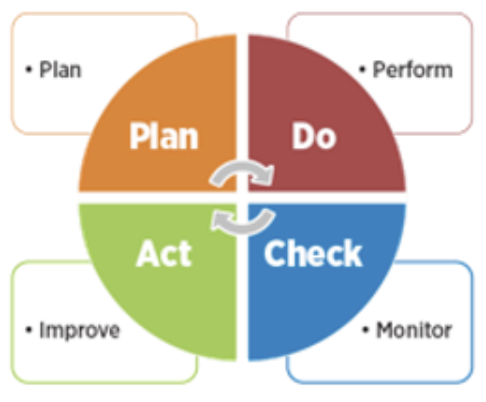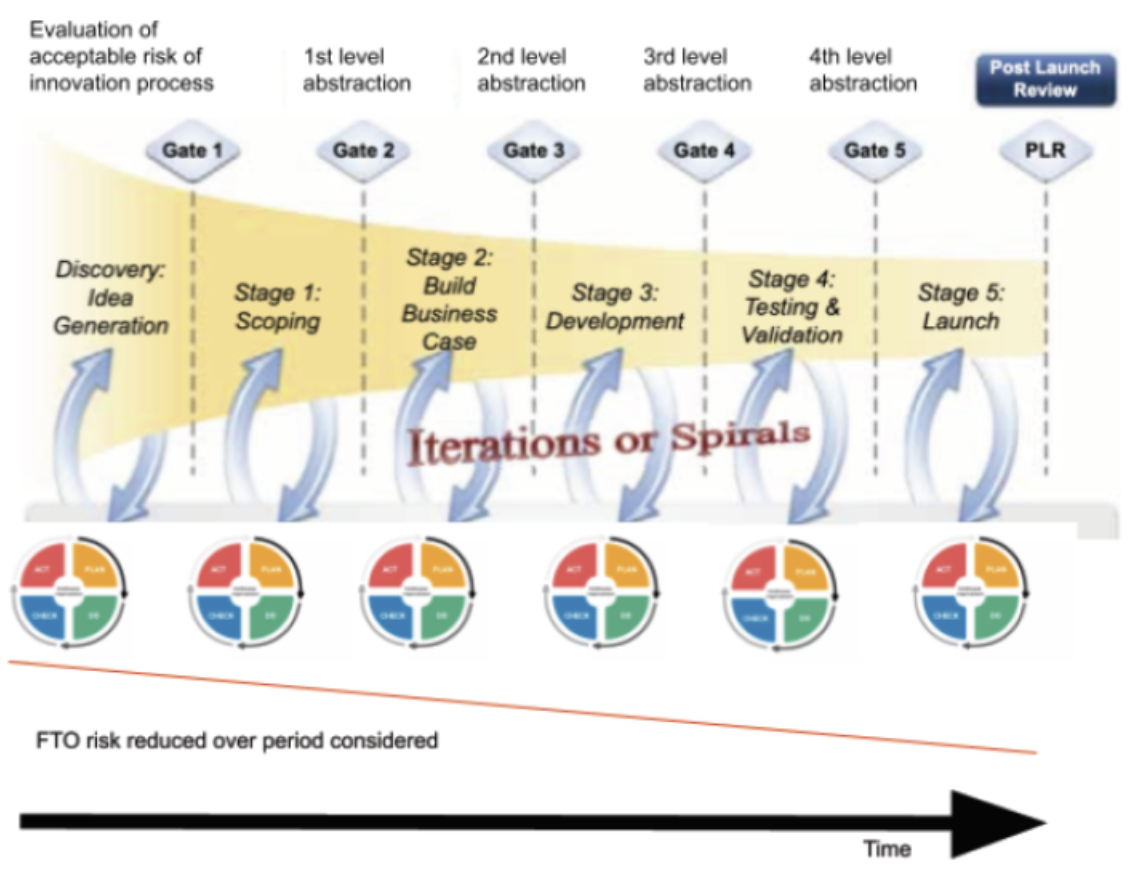IP risk management in digital business model creation: New research project at the MIPLM
How can IP keep pace with the agile development of digital business models? How can IP based risk management be adapted to the paradigm of iterative, agile project management and the speed of digital developments? This MIPLM thesis deals with the use of continuous quality management processes, in particular the Plan-Do-Check-Act (PDCA) cycle in innovation development models to minimize freedom to operate risk. Further the thesis considers the implementation of PDCA in agile innovation models typically used in digital business model development. The development of digital business models can have a higher speed of development and less defined objectives at the outset of the innovation process that can make them particularly suitable to agile working practices.
Intellectual Property (IP) risk management is about identifying and managing risks associated with intellectual property assets. IP risk management can include the consideration of the risks within an organization, for example disclosure of confidential information by individuals within the organization, and the consideration of the risk posed by the IP rights of competitors (Freedom to Operate (FTO)). This risk posed by IP rights of competitors means IP risk management is of concern to all organizations, whether they are IP rights holders or not.
The increasing complexity of products and processes, a need for interoperability and in particular digitalization in business models, has increased the risk of companies infringing third party Intellectual Property Rights. IP infringement, can have significant consequences for an organization’s business strategy, reputation and financial standing.
Consideration of FTO as part of a 360° IP strategy, as discussed for example in the MIPLM industry case study “Thermomix and its digital eco-system”, to ensure business objectives and milestones are integrated in the development of a value driven IP strategy is essential (see: Beat Weibel: Siemens develops IP strategy for digital business protection). Analysis of FTO, to assess IP rights held by third parties at a snapshot in time, for example FTO at a pre-product launch stage – checking the product or process when complete – is not a suitable model either from risk perspective or in view of agile working practices.
 Consideration of freedom to operate, late in the innovation process, can cause significant research and development wastage. This has parallels to the use of post-production mass quality inspection processes. Continuous quality management processes that have focused on product quality and continuous improvement throughout a manufacturing process have reduced wastage in manufacturing. This MIPLM thesis deals with the use of continuous quality management processes, in particular the Plan-Do-Check-Act (PDCA) cycle in innovation development models to minimize freedom to operate risk. Further the thesis considers the implementation of PDCA in agile innovation models typically used in digital business model development. The development of digital business models can have a higher speed of development and less defined objectives at the outset of the innovation process that can make them particularly suitable to agile working practices.
Consideration of freedom to operate, late in the innovation process, can cause significant research and development wastage. This has parallels to the use of post-production mass quality inspection processes. Continuous quality management processes that have focused on product quality and continuous improvement throughout a manufacturing process have reduced wastage in manufacturing. This MIPLM thesis deals with the use of continuous quality management processes, in particular the Plan-Do-Check-Act (PDCA) cycle in innovation development models to minimize freedom to operate risk. Further the thesis considers the implementation of PDCA in agile innovation models typically used in digital business model development. The development of digital business models can have a higher speed of development and less defined objectives at the outset of the innovation process that can make them particularly suitable to agile working practices.
Examples of digital business models are given in several industry case studies on IP-Management and are described here: “Digital patents impacts in digital business models” by Prof. Dr. Alexander J. Wurzer.
If IP risk management is considered as a continuous process, then surprises will be decreased (decreased likelihood of an adverse risk occurring) and proactive management can be used to reduce the potential impact of such risks. Management of IP risks as part of a continuous process enables proactive consideration of risk during R&D, development and commercialization phases of the innovation process, with the probability and impact of IP risks being balanced against allocated resources to identify, analyze and mitigate such risks.

FTO and the methodology utilized to identify and manage IP associated risks is increasingly being considered, for example in relation to the German DIN Standard 77006, and in the codification of the proportionality test in Germany as basis for temporary or permanent suspension of injunction measures. Thus, consideration and implementation of appropriate quality management based frameworks to ensure compliance in relation to risk within IP management are required.
A quality management based framework which incorporates PDCA alongside an agile innovation development process has been developed to provide IP intelligence to feed into R&D departments during the innovation process, the monitoring of competitors to drive new opportunities, and minimization of infringement risk. Additionally the framework allows consideration of appropriate collaborations and licensing during the innovation process. An organization can therefore proactively assess the IP environment to make business-driven choices of where to allocate resources as part of the innovation development process.
 The research project was conducted by MIPLM graduate Dr. Russell Thom and supervised by Prof. Dr. Alexander Wurzer and Dr. Thibaud Lelong both CEIPI.
The research project was conducted by MIPLM graduate Dr. Russell Thom and supervised by Prof. Dr. Alexander Wurzer and Dr. Thibaud Lelong both CEIPI.
Russell’s background includes a degree in Medical Biochemistry at the University of Glasgow and a PhD in Chemistry in relation to the use of protein crystallography to determine the structure of Glutathione-S-Transferases from plants to enhance herbicide selectivity. He joined Murgitroyd, European Patent and Trademark Attorneys, and became a Chartered UK Patent Attorney and European Patent Attorney. Russell is now Regional Head, Patents UK in Murgitroyd and has responsibility for risk issues across the company.
In 2021, Russell graduated in the Master of Intellectual Property Law and Management at CEIPI, University of Strasbourg.
Here is a description of the research project:



